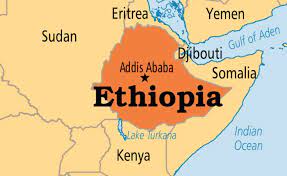The Tigray interim administration accused the Amhara regional government of incorporating specific areas namely Wolkait Tegede, Setit Humera and Raya in Amhara’s “educational maps and curricula.”
In a statement released earlier Thursday, the Amhara regional administration vehemently criticized the recent reaction of the Tigray interim administration concerning the purported incorporation of specific regions in Amhara’s “educational maps and curricula.”
The Amhara administration characterized this response as “aggressive,” suggesting it entailed ‘threats and a pretext for violence.”
This statement comes after the Tigray interim administration expressed concerns over the Amhara regional government’s alleged attempts to “incorporate Tigray lands into its educational curriculum and maps,” claiming them as its own.
The interim administration labeled these actions as “irresponsible” and accused the Amhara region of a systematic effort to “dismantle Tigray.” It cautioned the Amhara regional administration was making “historical mistakes” and will responsible for “the consequences”, while calling on the region to make “immediate correction” of these actions.
However, the Amhara regional administration’s statement countered the areas that it refers to as “Wolkait and Raya” have longstanding “questions of identity and self-governance.”
The statement alleged that the former Tigray regional government of the area responded to such demands through “arrest, persecution, and violence against residents, elders, identity rights coordinators, and administrators” rather than proper legal procedures.
It also asserted that prior to the signing of the Pretoria accord between the federal government and the TPLF, the Amhara region, in alignment with its other zones, had been delivering public services, such as education, to the local populace in the area.
The Amhara regional administration urged the Tigray interim authorities to “refrain from activities that are a source of permanent crisis for the country” and instead focus discussions on “the needs of the people” rather than “the usual game of politics” over maps.
MG/abj/APA


